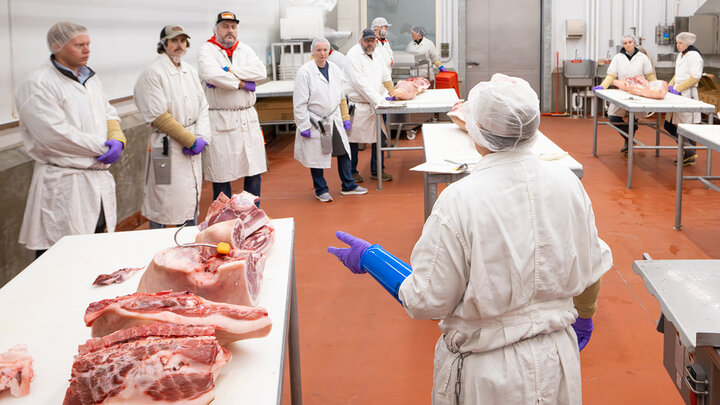The United Nations General Assembly has declared 2025 as the International Year of Cooperatives under the theme "Cooperatives Build a Better World."
The key objectives for IYC25 include:
- Governments creating an enabling environment for cooperatives
- Cooperatives promoting public awareness, developing new leaders, and leveraging cooperation
- Institutions and development agencies promoting cooperatives through education, strengthening capacities, and facilitating international collaboration
- The public understanding the cooperative identity and supporting cooperative initiatives
At the Nebraska Cooperative Development center (NCDC), we know cooperatives “Build a Better Nebraska”. Since 1999, the University of Nebraska-Lincoln’s Nebraska Cooperative Development Center has worked in 157 Communities on over 300 Projects. NCDC has helped form 50 cooperatively operated businesses, including 17 cooperatively owned grocery stores, seven non-profits, two business associations, and 44 Limited Liability Companies operating cooperatively.
The cooperative model of business ownership presents several key advantages:
- Cooperatives exist to meet their members’ needs. Their focus is on service to members, not on bringing a return to investors.
- Cooperatives have access to special treatment under the US Tax Code that provides them with advantages not typically available to investor-owned corporations.
- Cooperatives are owned and controlled by their members. Cooperatives keep resources in the members’ community and are guided by members’ values.
- Cooperative decisions are made democratically (each member has one vote) by the membership providing a strong direction that is supported across the organization.
- Cooperative profits are returned to members, so members benefit from the business they do with the cooperative.
- Cooperatives contribute to the economic stability of their communities.
- Cooperatives distribute the benefits of real ownership based on time and use, not just the amount of money someone can invest.
In Nebraska, cooperative grocery stores not only provide jobs and access to food, supporting the local economy; but serve as a gathering space for rural residents, preserving the town’s local character. A cooperative childcare center provides quality care for the children of local employees and quality jobs for local childcare providers. A homecare worker cooperative builds wealth for the worker-owners while allowing aging community members to remain in their homes. Investment cooperative members invest their wealth into the community projects ensuring a vibrant community for generations to come. Cooperatives allow farmers to work together to market commodities, purchase ag inputs and access global markets.
Want to learn more about exploring the formation of a cooperative to meet an economic need in your community? Contact Cindy Houlden, Cooperative Development Specialist, choulden2@unl.edu or 308-293-6417 or visit ncdc.unl.edu.
The Nebraska Cooperative Development Center (NCDC) is located in the Department of Agricultural Economics at the University of Nebraska–Lincoln. NCDC programs abide with the nondiscrimination policies of the University of Nebraska–Lincoln and the United States Department of Agriculture. NCDC is funded in part by the USDA RCDG Grant Program.
Listen: Nebraska FARMcast
Cindy Houlden, with the Nebraska Cooperative Development Center, talks about the impact of cooperatives and beyond and the impliications of the Year of Cooperatives designation.




